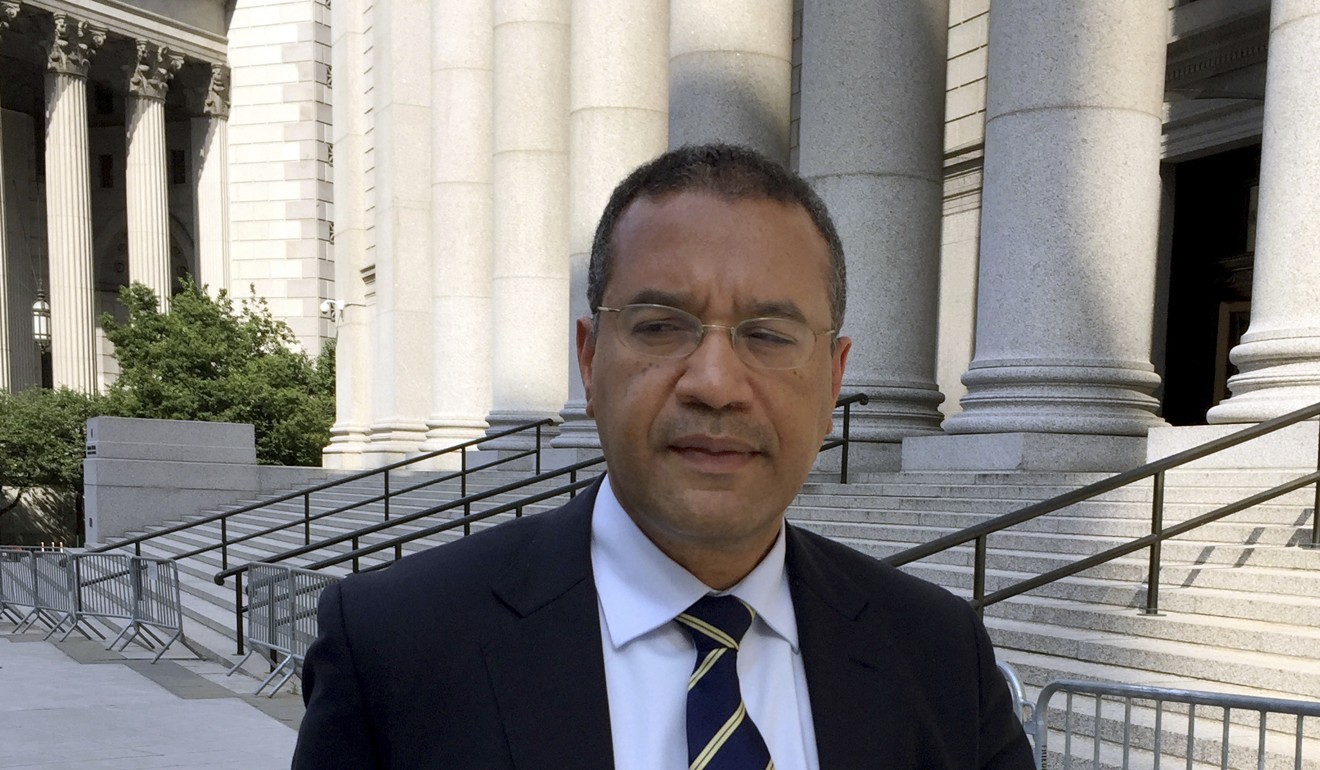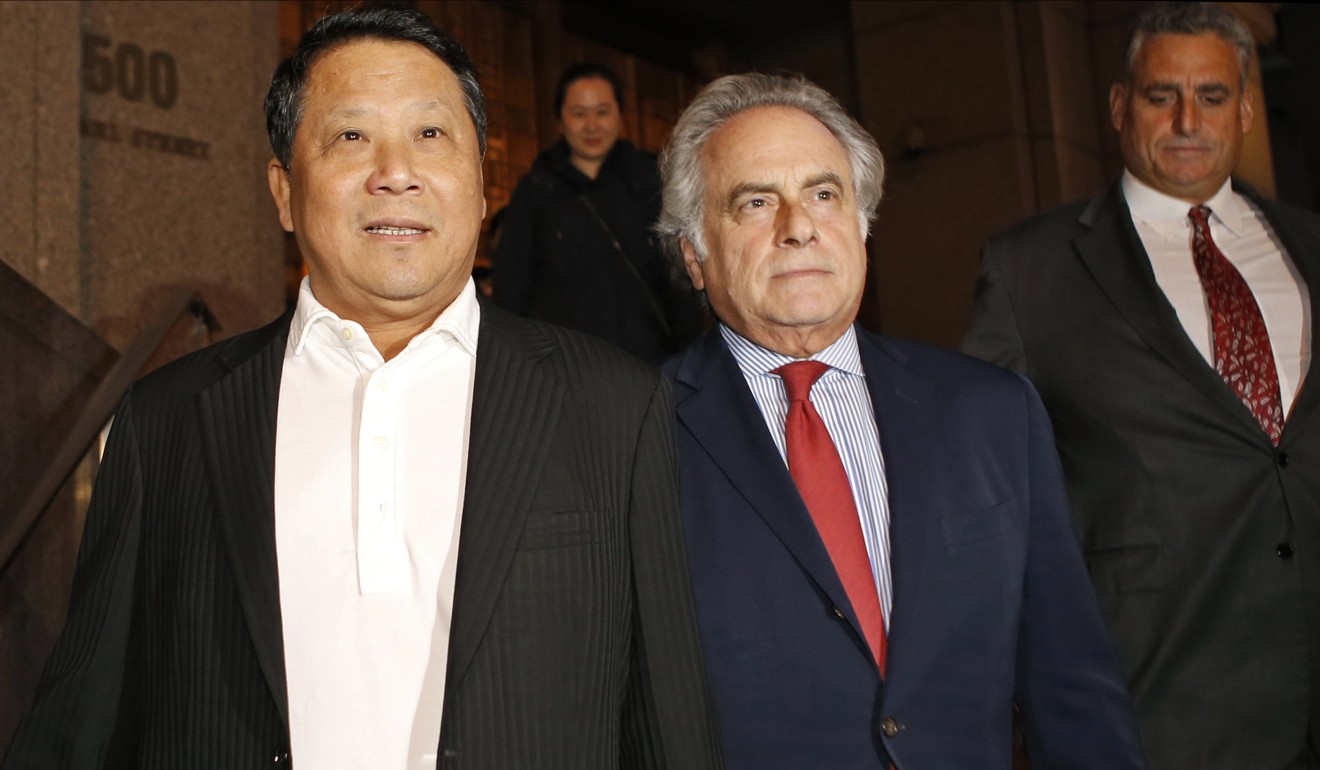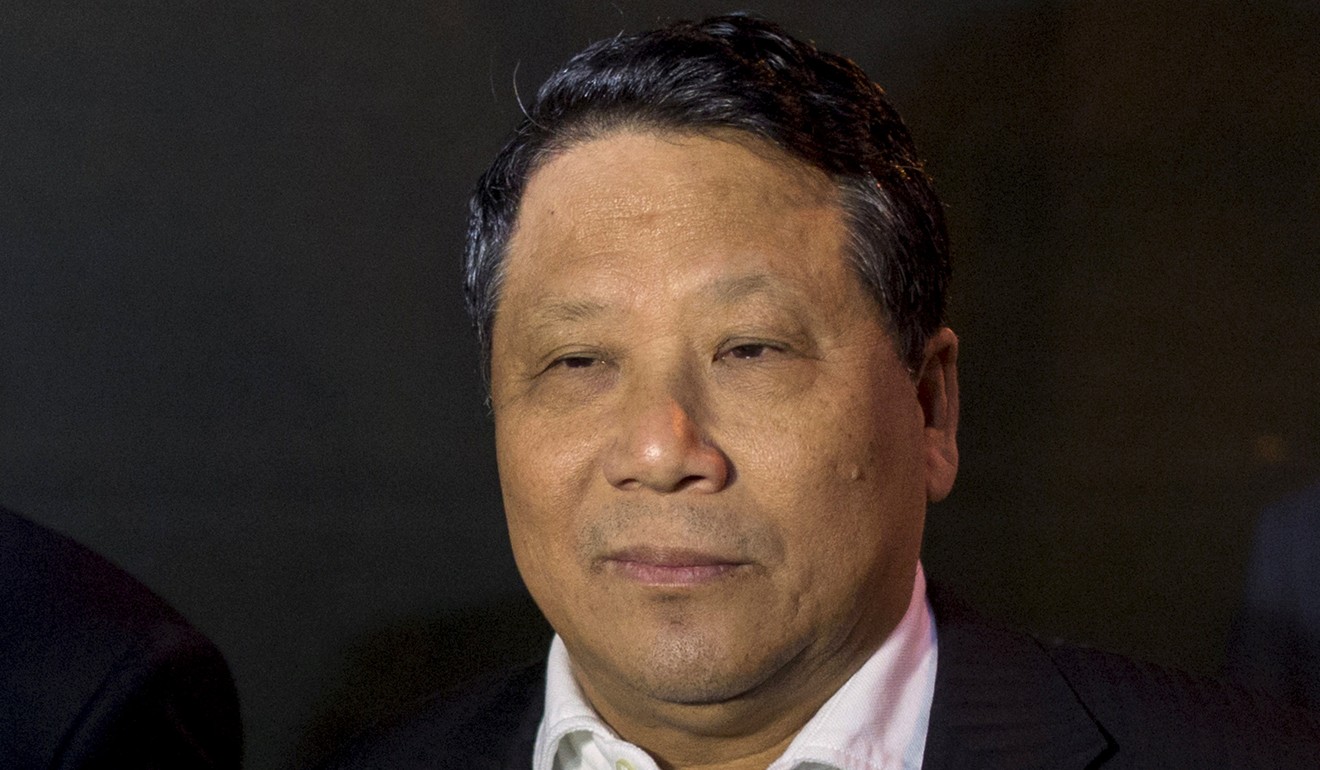Chinese billionaire Ng Lap Seng convicted in United Nations bribery case
A Macau billionaire who wanted to build a United Nations centre in the territory was convicted on Thursday of paying more than US$1.7 million in bribes to UN ambassadors to get it done.
The verdict was returned after a day of deliberations in Manhattan federal court against Ng Lap-seng, one of China’s richest men. Ng was convicted of bribery, conspiracy and money laundering charges.
Prosecutors presented evidence that Ng from 2010 to 2015 bribed two UN ambassadors, including a UN General Assembly president, paying one US$50,000 monthly at the scheme’s peak to create a centre to serve struggling Southern Hemisphere nations.
Defence lawyers contended the payments were ordinary. But the centre was never built.
Ng looked at jurors as the verdict was announced but otherwise did not display emotion.
US District Judge Vernon S. Broderick tightened Ng’s bail conditions, saying he was now “literally under house arrest,” confined under US$50 million bail to a luxury Manhattan apartment where he has remained for most months under 24-hour guard since his September 2015 arrest.
“He cannot leave that apartment. No ifs, ands or buts about that,” the judge said.
Bribe claims against Chinese billionaire Ng Lap-seng ‘a big zero’, says defence lawyer
No sentencing date was set. Ng, 69, could face up to 65 years in prison.
Ng’s lawyer, Tai Park, did not immediately comment. After the verdict, he told the judge there were multiple avenues for appeal.
“Nothing has changed other than the presumption of innocence is no longer there,” Park said. “We’ve been preparing him for this eventuality.”

In a statement, Acting US Attorney Joon H. Kim said Ng “corrupted the highest levels of the United Nations.”
“Through bribes and no-show jobs, Ng turned leaders of the league of nations into his private band of profiteers,” Kim said.
The verdict was a triumph for prosecutors who navigated thorny legal issues surrounding immunity given to UN diplomats before winning the cooperation of suspended Dominican Republic Ambassador Francis Lorenzo, who pleaded guilty to charges and testified against Ng.
Criminal or hero? Macau billionaire Ng Lap-seng’s UN bribery trial begins with duelling narratives
Lorenzo said Ng initially paid him US$20,000 a month as president of a media organisation before boosting that by US$30,000 a month with instructions to get Ng’s construction company named on official UN documents as the company that would build the Macau centre.
In closing arguments, Assistant US Attorney Janis Echenberg said Ng paid more than US$1.7 million in bribes to build a UN facility as big as New York’s, to create the “Geneva of Asia.” She said Ng “corrupted the United Nations.”

“Brick by brick, bribe by bribe, the defendant built the path that he thought would build his legacy,” she said.
In closing, Park derided the prosecution as “frankly outrageous.”
“It falls by its own weight,” he said. “It’s a big zero.”
He blamed the ambassadors — former UN General Assembly President John Ashe and Lorenzo — for manipulating Ng.
“Mr Ng literally threw his money in every direction he was asked,” Park said.
Ashe, who was arrested in the case but was not charged with bribery, died last year in an accident at his home.













